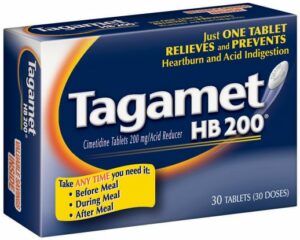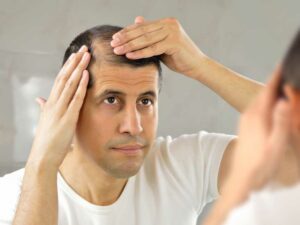Abstract:
BACKGROUND AND METHODS–Because acne is androgen dependent, antiandrogen therapy might improve the condition. Inocoterone acetate (RU 882) is a nonsteroidal antiandrogen that binds to the androgen receptor and has antiandrogenic activity in animal models. To test its topical effect on acne, 126 male subjects with facial acne completed a 16-week, multi-center, double-blind study in which the twice-daily application of a 10% solution of inocoterone was compared with vehicle solution. Baseline and monthly examinations included acne lesion counts and general and endocrine laboratory tests. RESULTS–Inflammatory papules and pustules showed greater reduction in the inocoterone-treated subjects than in the subjects treated with vehicle. This difference achieved statistical significance by week 12 (24% reduction vs 10%) and week 16 (26% reduction vs 13%) and, with longitudinal analysis, throughout the course of the study. Global assessments and changes in comedo counts and sebum excretion rates were not significantly different between the groups. No serious adverse reactions were encountered. CONCLUSIONS–In this double-blind study of 126 male subjects with acne, a topical solution of the antiandrogen inocoterone, compared with vehicle, produced a modest but statistically significant reduction in the number of inflammatory acne lesions.
Author:
Lookingbill DP; Abrams BB; Ellis CN; Jegasothy BV; Lucky AW; Ortiz-Ferrer LC; Savin RC; Shupack JL; Stiller MJ; Zone JJ; et al
Address:
Division of Dermatology, Pennsylvania State University College of Medicine, Hershey.
Source:
Arch Dermatol, 128: 9, 1992 Sep, 1197-200
Language:
English
Unique Identifier:
92391885





